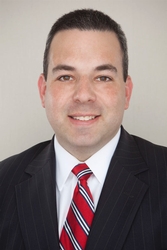
COVID-19
-
April 15, 2020
Legislature Adopts Two Laws Important To Associations During The State of Emergency
Client Alert
New Law Authorizes Association Membership Meetings by Remote Communication
Written by: Ronald L. Perl
Under a new law enacted yesterday, community associations and other non-profit corporations may conduct membership meetings by remote communications during this and any other state of emergency declared by the Governor. The bills, S-3242 and its Assembly counterpart A3915, amend the New Jersey Nonprofit Corporation Act to allow the conduct of annual meetings and other membership meetings by the use of Zoom, Webex or other similar services that afford each member participating remotely with a “reasonable opportunity to participate in the meeting, including the ability to vote on matters submitted to the members and to read or hear the proceedings of the meeting substantially concurrently with those proceedings.” This means that the communication method must be real time.The law requires the association board to authorize and adopt guidelines and procedures governing the meeting. Reasonable steps must be taken to verify that the participants are members or proxies of members and the association must maintain a record of the proceedings, including any votes that are taken. In other words, minutes must be produced as a record of the business conducted at the meeting. Notice of the meeting must be given personally or by mail, unless electronic notice has been authorized pursuant to the Radburn law. The notice must describe the means of remote communication being used to allow the members to participate.
We have been advising associations to conduct open board meetings using remote communications, as they have been authorized by another provision of the Nonprofit Corporation Act, N.J.S.A. 15A:6-10, since 1983. As we’ve pointed out, it is possible to comply with the open meetings law in this situation by making the remote communications method available to the members as well. This new law now enables associations to conduct both board and membership meetings remotely. S-3242 can be found here.
Governor Signs Law Allowing Remote Notarization During COVID-19
 Written by: Jonathan H. Katz
Written by: Jonathan H. Katz
Being thrust into a work from home (WFH)/social distancing world in the matter of a few weeks has created unforeseen issues for New Jersey’s workforce and for community associations in particular. One such issue was how can we get important documents notarized when we cannot conduct in person meetings or be in the presence of a notary?On April 14, 2020, Governor Murphy signed legislation to address this particular issue, relaxing the requirement that an individual must sign a document in the physical presence of a notary public in order for that notary to be authorized to notarize the document. The new law (A-3903/S-2236), which can be found here allows remote notarial acts and other acts for executing and verifying certain documents during the Public Health Emergency and State of Emergency declared by the Governor’s Executive Order No. 103.
Specifically, the law allows a notary public or an “officer” authorized to take oaths, affirmations, and affidavits (e.g., an attorney) to notarize documents remotely using technology that allows for communication between both individuals “by sight and sound” under specific circumstances. Those circumstances include that the notary public or officer must: (A) have knowledge of the identity of the individual or at least two (2) different types of identity proofing sufficient to provide reasonable certainty that the individual is who s/he says s/he is; (B) be reasonably able to confirm that the document signed by the individual is the same document being notarized; and (C) creates an audio-visual recording of the performance of the notarial act.
This is an important law for New Jersey community associations in that it will now allow important documents, like amendments, resolutions, or liens, to be notarized remotely either by a notary public or by the association’s legal counsel.
For further information on either of these communications, please contact any of the Hill Wallack Community Association team listed below.
Ronald L. Perl
Partner-in-Charge
(609) 734-6349
rperl@hillwallack.comKenneth R. Sauter
(973) 946-7021
ksauter@hillwallack.com
George C. Greatrex, Jr.
(856) 616-8080
ggreatrex@hillwallack.comCaroline Record
(973) 946-7020
crecord@hillwallack.comMichael S. Karpoff
(609) 734-6376
mkarpoff@hillwallack.comJonathan H. Katz
(609) 734-6393
jkatz@hillwallack.comGregg A. Shivers
(856) 616-8080
gshivers@hillwallack.comCatherine M. Brennan
(609) 734-6353
cbrennan@hillwallack.comLoren Rosenberg Lightman
(609) 734-6323
llightman@hillwallack.comJennifer L. Webb
(856) 616-8080
jwebb@hillwallack.comTerry A. Kessler
(609) 734-6350
tkessler@hillwallack.comJessica N. Baker
(609) 734-6377
jbaker@hillwallack.comSusan L. Swatski
(609) 734-6318
sswatski@hillwallack.comAlexandra C. Hayes
(609) 496-5725
ahayes@hillwallack.com©2020 Hill Wallack LLP. All rights reserved. Please contact Hill Wallack for permission to reprint. Notice: The purpose of this Client Alert is to identify select developments that may be of interest to readers. The information contained herein is abridged and summarized from various sources, accuracy and completeness of which cannot be assured. This Client Alert should not be construed as legal advice or opinion, and is not a substitute for the advice of counsel.


